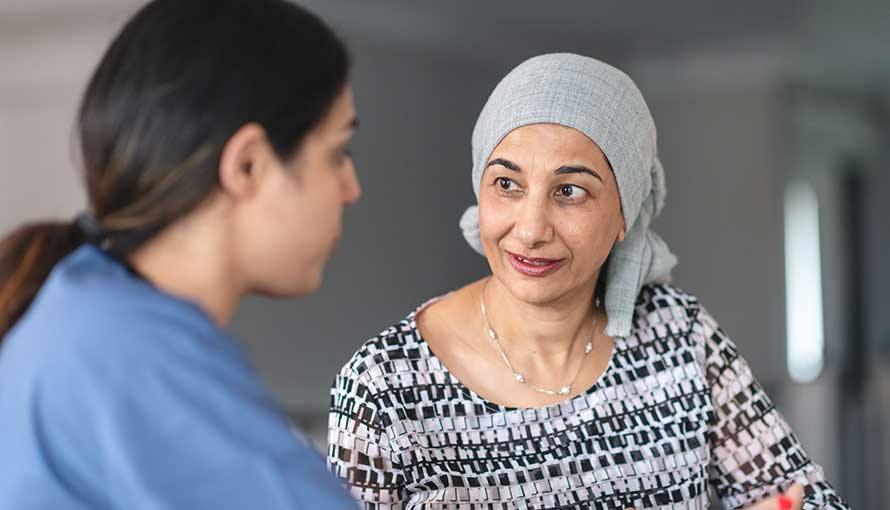How Common Is Colon Cancer in Women

Colon cancer is a malignancy that originates in the cells that line the large intestine. An important part of the body’s gastrointestinal system, the colon processes the byproducts of food digestion, absorbs water and moves waste into the rectum and anus, where it exits the body in the form of stool. In most cases, colon cancer develops after cells in the colon undergo abnormal changes that cause them to rapidly reproduce and form masses. The precise triggers of those changes are not yet well understood within the general medical community.
For statistical purposes, colon cancer cases are often combined with rectal cancer cases and collectively referred to as colorectal cancer, which is one of the most frequently diagnosed malignancies in the United States. According to recent studies, the lifetime risk of developing colorectal cancer is 4.0% (1 in 25) for women, and slightly higher at 4.3% (1 in 23) for men.
The importance of early detection
When detected early, colon cancer can be effectively treated and even cured. In fact, since the 1980s, the incidence of colorectal cancer has declined by approximately 1% each year. Many experts attribute the downward trend to the effectiveness of colon cancer screening tests, such as colonoscopies, which is widely recommended for routine use in average-risk adults age 45 and older.
Additionally, colon cancer screenings may begin at a younger age or be performed more frequently for at-risk individuals, including those who have:
- A family history of colon or rectal cancer in a parent, sibling or child
- A personal history of colon, rectal or ovarian cancer; high-risk adenomas (abnormal colorectal polyps); tobacco use or excessive alcohol consumption
- An inherited condition, such as familial adenomatous polyposis (FAP) or Lynch syndrome (hereditary nonpolyposis colorectal cancer)
- A condition that affects the gastrointestinal tract, such as chronic ulcerative colitis or Crohn’s disease
Signs women should be especially vigilant for
In many cases, early-stage colon cancer does not produce obvious symptoms. Some warning signs, which can affect both men and women, include:
- A change in bowel habits, such as chronic diarrhea or constipation
- Bloody, dark-colored or narrow stool
- Rectal bleeding
- Stomach pain, fullness, cramping and bloating
- Iron deficiency (anemia)
- Unintended weight loss
Many of these symptoms can be caused by a condition that is less serious than cancer, such as a viral infection, hemorrhoids, irritable bowel syndrome or poor nutrition. What’s more, a premenopausal woman might be inclined to automatically attribute certain early warning signs of colon cancer, such as cramping and bloating, to menstrual or gynecological issues. Therefore, it is important for everyone—particularly women—to become familiar with their body so they can promptly discuss any usual changes with a physician.
If you are concerned about colon cancer and would like to explore your risk profile, talking with an expert can go a long way toward calming your fears. You can connect with a specialist in the Gastrointestinal Oncology Program at Moffitt Cancer Center by calling 1-888-663-3488 or completing our new patient registration form online. As Florida’s top cancer hospital, our goal is to provide every new patient with rapid access to a cancer expert as soon as possible, which is faster than any other cancer hospital in the nation.
